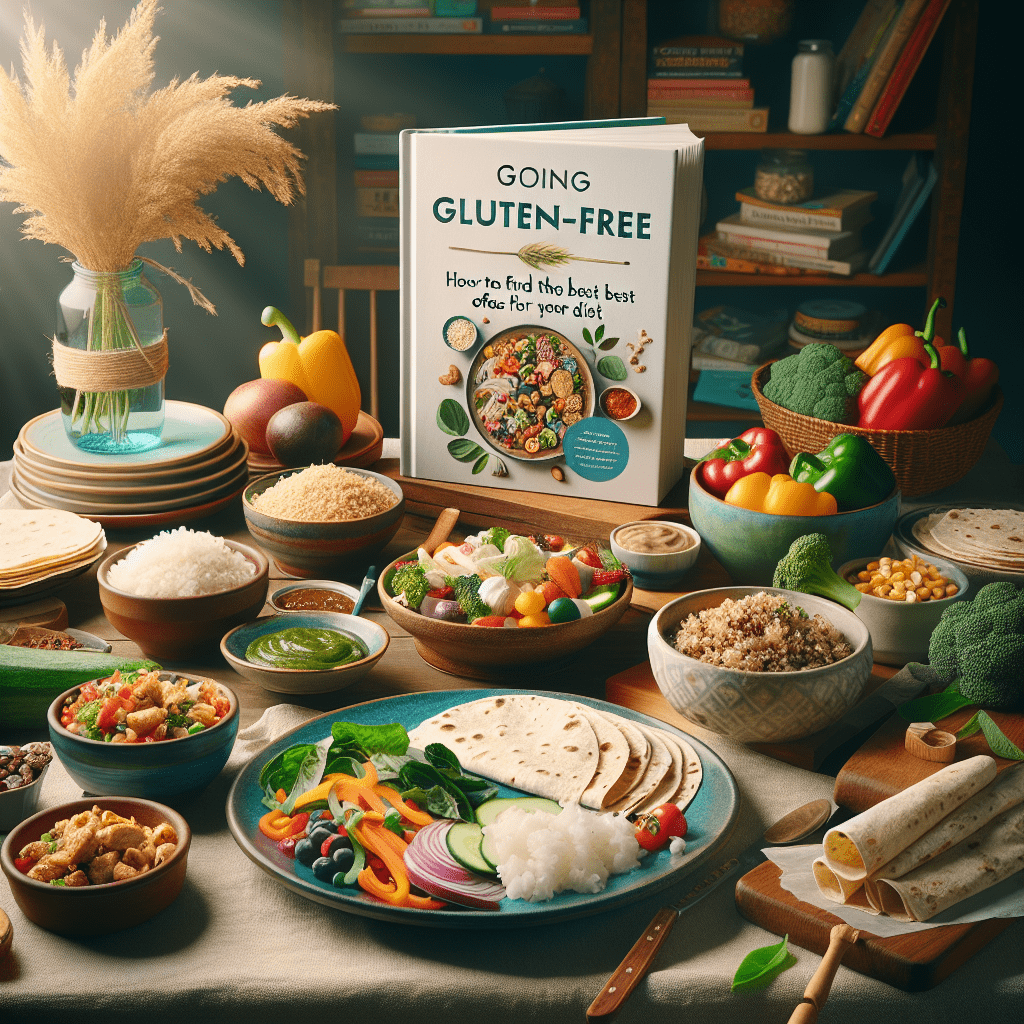[ad_1]
# Going Gluten-Free: How to Find the Best Options for Your Diet
In the journey toward a healthier lifestyle, many have turned their gaze toward the gluten-free diet. Initially a necessity for those with celiac disease or gluten sensitivity, avoiding gluten has also become a choice for individuals seeking to improve their overall health and well-being. However, embarking on this dietary path can seem daunting, especially when it comes to finding the right options that don’t compromise on taste or nutritional value. This guide will walk you through the essentials of going gluten-free and how to find the best dietary options for you.
## Understanding Gluten and Its Effects
Gluten is a protein found in grains such as wheat, barley, and rye. For people with celiac disease, consuming gluten triggers an immune response that damages the small intestine, leading to nutrient absorption problems, anemia, fatigue, and other serious health issues. Gluten sensitivity, on the other hand, doesn’t cause intestinal damage but can still lead to uncomfortable symptoms like bloating, gas, and diarrhea.
## Starting Your Gluten-Free Journey
### 1. **Educate Yourself**
Knowledge is power. Understanding which foods naturally contain gluten and which don’t is the first step. Foods like fruits, vegetables, meat, poultry, fish, and dairy are naturally gluten-free. However, gluten can be hidden in sauces, condiments, and processed foods, so it’s crucial to become a label-reading expert.
### 2. **Plan Your Meals**
Planning is a vital component of successfully maintaining a gluten-free diet. Start by outlining your meals for the week and make a shopping list to avoid the temptation of gluten-containing foods. There are plenty of gluten-free alternatives like quinoa, rice, and gluten-free pasta that can easily replace their gluten-containing counterparts.
### 3. **Experiment with Gluten-Free Recipes**
The Internet is a treasure trove of gluten-free recipes. From gluten-free breads to desserts, there is a vast array of recipes that cater to a gluten-free lifestyle without sacrificing flavor. Experimenting with these recipes can make your diet more enjoyable and varied.
### 4. **Seek Out Gluten-Free Products and Brands**
Many supermarkets now have sections dedicated to gluten-free products. Look for certified gluten-free labels as they adhere to strict gluten-free standards. Be wary of cross-contamination in products that are naturally gluten-free but processed in facilities that also process wheat, barley, or rye.
## Dining Out Gluten-Free
Eating out can pose challenges, but it’s not impossible. Research restaurants in advance to see if they offer gluten-free options. Don’t hesitate to communicate your dietary needs to the staff—they are usually more than willing to accommodate.
## The Benefits of Going Gluten-Free
For those with celiac disease or gluten sensitivity, a gluten-free diet is essential. However, even for individuals without these conditions, a gluten-free diet can lead to improvements in gastrointestinal health, reduced inflammation, increased energy levels, and weight loss. Keep in mind, though, that not all gluten-free products are healthier alternatives; some are high in sugar and fat to compensate for texture and flavor.
## Going Beyond the Diet: A Holistic Approach
Adopting a gluten-free diet is just one aspect of leading a healthier lifestyle. Incorporating regular exercise, staying hydrated, and ensuring a well-balanced diet rich in fruits, vegetables, lean proteins, and healthy fats are crucial for overall well-being.
## FAQs
**Q: Is it expensive to maintain a gluten-free diet?**
A: It can be, especially if you rely heavily on processed gluten-free products. However, focusing on naturally gluten-free foods like fruits, vegetables, and lean meats can be cost-effective.
**Q: Can going gluten-free lead to nutrient deficiencies?**
A: Yes, if not planned properly. Gluten-free diets can lack in fiber, iron, and B vitamins. It’s important to ensure you’re getting a balanced diet and consider supplements if necessary.
**Q: How do I know if a product is truly gluten-free?**
A: Look for products labeled as certified gluten-free. These have been tested and meet strict gluten-free standards.
**Q: Is it safe to eat oats on a gluten-free diet?**
A: Pure, uncontaminated oats are generally safe for most people with celiac disease or gluten sensitivity. However, oats are often contaminated with gluten, so it’s important to only consume oats that are certified gluten-free.
**Q: Will going gluten-free help me lose weight?**
A: Possibly, but not solely because you’re avoiding gluten. Weight loss on a gluten-free diet usually results from cutting out high-calorie, processed foods and replacing them with healthier options.
Embarking on a gluten-free journey requires dedication, but it doesn’t have to be a difficult one. With the right knowledge and preparation, finding the best gluten-free options for your diet can be an enjoyable and health-enhancing experience. Whether you’re navigating this path due to medical necessity or personal choice, the benefits of embracing a gluten-free lifestyle can be profound and life-changing.
[ad_2]

Leave a Reply